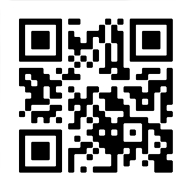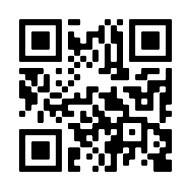Mastering American Slang: A Guide for F-1 Students
Welcome to the Excel English Institute’s blog! As an F-1 student studying in the United States, mastering American slang can significantly enhance your language skills and help you connect with native English speakers on a deeper level.
In this guide, we’ll delve into the fascinating world of American slang, providing you with valuable insights, practical examples, and expert tips to navigate the intricacies of informal English. Whether you’re aiming to blend in with locals or simply want to understand popular slang expressions, this guide will equip you with the tools to confidently incorporate American slang into your daily conversations.
What is American Slang?
American slang is a dynamic and informal aspect of the English language that reflects the unique cultural expressions and nuances of the United States. Unlike formal English, which follows strict grammar and vocabulary rules, slang is characterized by its ever-evolving nature, creativity, and flexibility. It is commonly used in casual conversations and helps to establish connections between individuals.
For F-1 students studying in the United States, becoming familiar with current American slang is crucial for effective communication and cultural integration. By understanding slang, you can engage in everyday conversations, connect with native speakers, and gain insights into American popular culture.
Common American Slang Expressions
Greetings
- What’s up? (Meaning: How are you?)
- Sup? (Shortened form of “What’s up?”)
- Hey, dude! (Used to address a friend)
- Howdy! (A casual way to say hello, often associated with Southern dialect)
- Hey, buddy! (Used to address a friend)
- Yo! (Informal way of saying hello)
Exclamations
- Awesome! (Expressing enthusiasm or approval)
- Oh my God! (Used to express surprise or shock)
- No way! (Expressing disbelief or astonishment)
- Rad! (Meaning: Excellent or cool)
- Holy cow! (Used to express surprise)
- Oh snap! (An exclamation of surprise or excitement)
Agreement and Disagreement
- Totally! (Agreeing wholeheartedly)
- I’m down. (Meaning: I’m in agreement or willing to participate)
- Nah, I’m good. (Informal way of saying no or refusing something)
- For sure! (Meaning: Definitely or absolutely)
- I’m game. (Expressing willingness to participate)
- I beg to differ. (Politely expressing disagreement)
Idiomatic Phrases
- Piece of cake (Meaning: Something is very easy)
- Hit the road (Meaning: Leave or start a journey)
- Break a leg (Expression of good luck, often used in the performing arts)
- Couch potato (Referring to a person who spends a lot of time sitting and watching TV)
- On cloud nine (Feeling extremely happy or joyful)
- Beat around the bush (Avoiding the main topic or being indirect)
Remember, American slang is diverse and constantly evolving, and can even reflect regional differences in words and pronunciation. It’s always helpful to stay updated by actively engaging with native speakers, popular culture, and current media trends to expand your repertoire of slang expressions.
Slang Specific to Texas
As we are located in the Dallas, Texas, area, we’ve included these Texas-specific slang expressions to showcase the unique cultural identity and language of the state. Incorporating them into your conversations with locals can help you connect with Texans and immerse yourself in the vibrant Texan culture.
- Howdy: A traditional Texan greeting that means “hello” or “hi.” It’s commonly associated with the friendly and welcoming culture of Texas.
- Y’all: A contraction of “you all,” used as a plural form of “you.” It’s a widely used term in Texas and the Southern United States. For example, “Are y’all coming to the party?” When addressing a group, you might even hear it used as “all y’all.”
- Fixin’ to: A phrase used to express the intention or preparation to do something. It’s common to hear phrases like “I’m fixin’ to go to the store” or “Are you fixin’ to eat?”
- All hat, no cattle: This expression refers to someone who talks boastfully or acts like they have skills or expertise, but lacks the actual ability or experience to back it up. It’s a metaphorical way of saying someone is all talk and no substance.
- Aggie: Referring to a student or alumni of Texas A&M University. The term is often used to describe someone who embodies the school’s traditions, values, and spirit.
- Buggy: A word used in Texas to refer to a shopping cart or a grocery cart. For example, “Grab a buggy and let’s go shopping.”
- Coke: While the word used for soft drinks varies around the U.S., in Texas it is common to hear the brand name “Coke” used interchangeably for any soft drink/cola/pop/soda. So if you’re asked if you’d like a “Coke,” don’t be surprised if the follow up question is “What kind do you want?”
- America’s Team: This would be the Dallas Cowboys, but you probably already knew that.
Slang in Popular Culture and Media
American slang is deeply intertwined with popular culture and media, shaping trends and influencing everyday language. Movies, TV shows, music, and social media platforms contribute to the evolution and dissemination of slang terms. By engaging with these forms of media, you can immerse yourself in contemporary American slang and stay updated on the latest expressions.
For movie enthusiasts, films like “Clueless,” “Mean Girls,” and “Superbad” showcase popular slang from different eras. TV series such as “Friends,” “The Office,” and “How I Met Your Mother” incorporate slang expressions into their scripts, providing authentic examples for language learners. Netflix has tons of options for shows that are great to use when learning English. Additionally, music genres like hip-hop and rap often introduce new slang terms, while platforms like TikTok and Twitter showcase trending slang phrases in real-time.
Tips for Incorporating American Slang
- Understand the Context: Pay attention to the situation and the people you’re conversing with. Slang may not always be appropriate in formal settings, so gauge the environment before using it.
- Practice with Native Speakers: Engage in language exchange programs, conversation clubs, or social events where you can interact with native English speakers. Practice using slang in a supportive environment and learn from their natural usage.
- Listen and Observe: Pay attention to how native speakers use slang in conversations, movies, and TV shows. Listen to the intonation, context, and expressions associated with certain slang terms.
- Embrace Online Resources: Utilize online resources such as slang dictionaries, forums, and language learning apps that provide explanations and examples of American slang. Some popular resources include Urban Dictionary and Slang.
- Keep Up with Trends: Stay curious and follow popular culture trends, including music, social media, and entertainment. This will help you stay updated with new slang expressions and understand their meaning in context.
Remember, mastering American slang takes time and practice. Embrace the journey of discovering new expressions, enjoy the cultural connections it brings, and have fun incorporating slang into your English conversations.
Preparing to Study the English Language in the U.S.?
Congratulations! You’ve now completed our guide to mastering American slang as an F-1 student. By familiarizing yourself with common slang expressions, understanding their cultural significance, and practicing their usage, you’ll become more fluent and confident in your English conversations. Remember, mastering slang takes time, so keep practicing, stay curious, and embrace the fun and dynamic nature of American informal language. Happy slang learning!
If you’d like to learn more about classes you can take at Excel English Institute in Dallas, TX, check out our English Language Programs!
Excel English Institute empowers students to master the complexities of the English language while learning to thrive in American culture, both academically and professionally. Our interactive approach, developed from years of classroom experience, is tailored to meet the needs of non-native speakers of the English language. Apply today or give us a call at +1 (214) 363-1700 to learn more about our programs.














